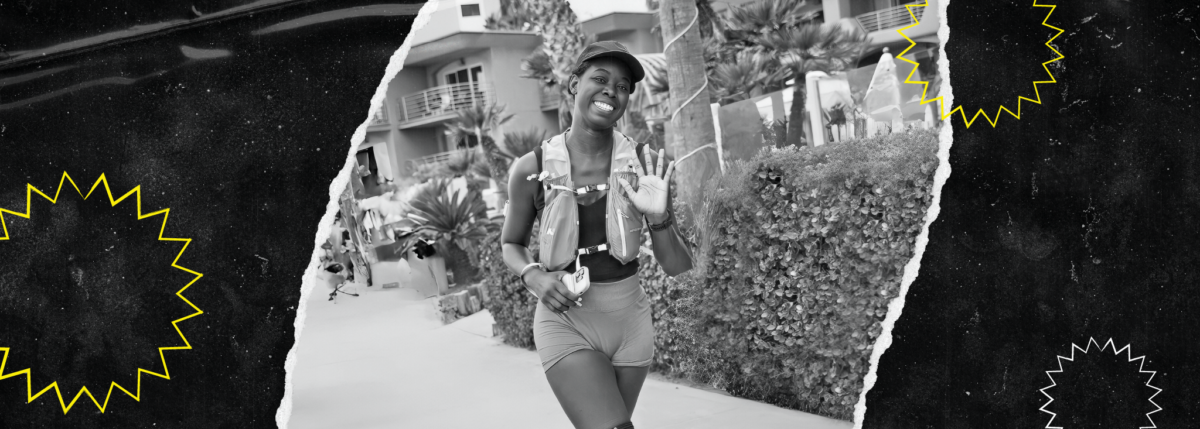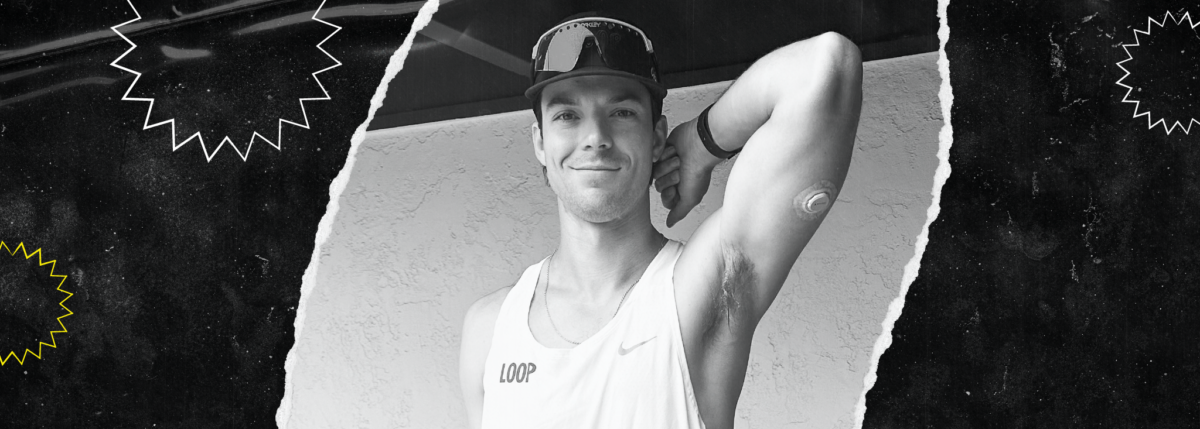Running to the Melody: Saxophonist Antoine Gibson Tackled the NYC Marathon and Diabetes
Written by: Daniel Trecroci
3 minute read
November 1, 2024
Antoine Gibson is no stranger to overcoming challenges. As a saxophonist and marathon runner living with type 1 diabetes, Antoine took on the 2024 TCS New York City Marathon while managing his diabetes.
In this Q&A, Antoine shares his inspiration for running as part of the Beyond Type Run team, how he prepared, and his strategies for keeping his blood sugars stable during the race.
Through his passion for running and music, Antoine hopes to inspire others to push past limitations and live life to the fullest despite the hurdles of diabetes.
What inspired you to take on the challenge of running the 2024 TCS New York City Marathon, especially while managing diabetes?
Diabetes is rarely a factor in me deciding—or not deciding—to do something.
I love working with nonprofits. I love doing things that have a bigger purpose than just my personal fulfillment or self-satisfaction.
I also know how nonprofits work. Beyond Type 1 has been doing amazing things in the diabetes community for years, and to be a part of raising funds for that continued mission is important to me.
Plus, I’m on the other side of 30. I needed to get in shape.
How did you prepare for the marathon? Were there specific challenges you faced during training due to diabetes, and how did you overcome them?
Running, running, and more running.
I tried to run in different environments each day, whether it was around my neighborhood, on a track, at the beach when I’m near a beach, up a mountain, around a mountain, on a treadmill, etc.
The only challenge I faced is low blood sugars during the second or third mile. It happened every single time, so I know how to correct and prepare for that drop.
Can you share your strategies for maintaining stable blood sugar levels during such an intense physical activity like marathon running?
Just try your best.
Micro-dosing carbohydrates is an effective method I’ve found. Skittles are about 1 gram of carbs each, so popping one every few minutes was helpful to me.
Exercise mode on my Mobi pump also helped a bunch.
Did you use any specific diabetes management tools, such as a continuous glucose monitor (CGM) or an insulin pump, during your marathon? How did they help?
The stricter Control-IQ algorithm during Exercise Mode on my Tandem Mobi pump helped a bunch with keeping blood sugars stable for long runs.
I always make the argument that CGMs are the single most important invention in diabetes management since the discovery of insulin. I say this because you’re able to see how you’re trending in real time on your phone.
If you’re falling quickly, you have time to notice and adjust.
For things like running 4-hour-long marathons, this is the most important tool, in my opinion.
How did you stay mentally strong when dealing with both the physical demands of marathon training and the daily management of diabetes?
A positive mindset can go a long way with everything in life.
I enjoyed getting in shape and taking a few hours out of my busy day to exercise. It felt good, and I enjoyed the journey!
The same goes with the daily management of diabetes. The ebbs and flows and daily ups and downs are just a part of diabetes. You do what you can to maintain homeostasis but accepting that “stuff happens” is my way to stay grounded. It is what it is.
Performing live can be physically demanding. How do you manage your blood sugar levels during performances? Does this differ from your approach during marathon running?
It’s much different than marathon running.
While running, I know exactly what the script is – Run a mile at a stable blood sugar, drop low around mile 2.5, correct and micro-dose carbs for the rest of the run.
For performing, every gig is different. Did I eat before? What have I been trending all day? What kind of show is it? Am I the lead man or a side man? I always have fruit snacks in my pocket or a sprite and water near me just in case I need them.
As a public figure in both the music and running communities, how do you use your platform to raise awareness about living with type 1 diabetes?
I have an original song from my first album called “Mellitus”. I perform it at most of my shows and give a speech about the origins of the name and what I do in the diabetes world. I always try to remember to tell people where to find more information about what I’m doing and how to support them in any way they can.
How do you hope your dual identity as a saxophonist and marathon runner living with type 1 diabetes will inspire others who face similar challenges?
Yea! I hope that people see me and the many hats that I wear and know that the only limits out here are the limits that you place on your own potential.
We all have the same 24 hours. We all don’t have the same starting point in the marathon of life, but it’s just that–a marathon. Run your own race at your own pace and don’t stop. And once you cross the finish line, it’s on to the next one.
This content was made possible by Dexcom, an active partner of Beyond Type 1. Beyond Type 1 maintains editorial control over its content.
Related Resources

Danica Collins not only prepared for one of the most challenging physical events of her...
Read more

Beyond Type 1 is spotlighting inspiring athletes with type 1 diabetes as they prepare for...
Read more

On November 3, 2024, Taylor Rindfleisch of Chicago laced up her running shoes for the...
Read more


